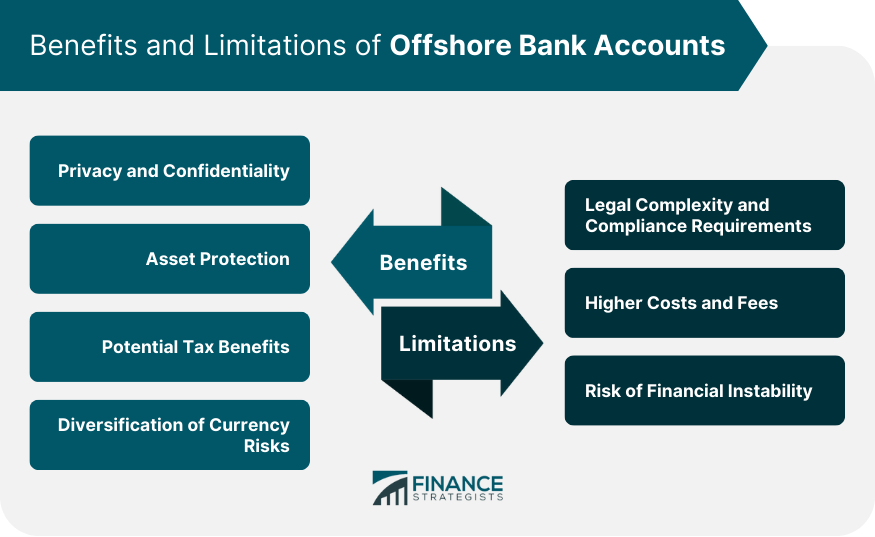Offshore Company Formations Explained: A Thorough Resource for Starters
Wiki Article
Checking Out the Solutions Offered in Offshore Company Formations: What You Need to Know
Offshore firm formations provide a variety of services made to facilitate business success while ensuring compliance with lawful requirements. These services can include company enrollment, lawful recommendations, and arrangements for privacy through candidate directors. Furthermore, factors to consider around tax optimization and possession defense are critical. Recognizing these elements can greatly affect one's decision-making process. The intricacies of guiding and choosing the best territory with policies raise better inquiries. What should one take into consideration next?Recognizing Offshore Business Frameworks
What defines an offshore business structure? An offshore firm is usually registered in an international jurisdiction, commonly defined by favorable regulatory atmospheres and confidentiality. These frameworks are designed to supply legal splitting up between the firm's assets and its owners, making it possible for an array of operational and monetary advantages. Offshore business can be established as numerous kinds, including restricted responsibility business (LLCs), corporations, or depends on, relying on the regulative framework of the selected jurisdiction.Key attributes of these frameworks consist of boosted privacy, possession security, and simplicity of international business transactions. Furthermore, they usually call for very little neighborhood existence and can facilitate the monitoring of investments across borders. The selection of a details offshore jurisdiction can considerably influence the operational capacities and conformity requirements of the business. In general, understanding the ins and outs of offshore business structures is essential for entrepreneurs and capitalists seeking to maximize their business approaches.
Tax Obligation Benefits of Offshore Companies
Offshore firms offer considerable tax obligation advantages that can enhance success and financial efficiency for entrepreneur. Among the main advantages is the potential for minimized business tax rates, which can be especially less than those in the proprietor's home country. Numerous overseas territories offer tax obligation incentives, such as tax holidays or exceptions on particular types of income. In addition, overseas companies might take advantage of beneficial tax treaties, permitting the decrease or elimination of withholding tax obligations on returns, nobilities, and passion. This can bring about boosted capital and far better reinvestment opportunities. Some offshore entities can run under a territorial tax obligation system, which just tax obligations income produced within that territory. This framework can be specifically advantageous for organizations involved in worldwide profession or on the internet services, allowing them to optimize their tax obligation responsibilities while maintaining conformity with worldwide policies. Overall, these tax obligation advantages can substantially add to long-lasting financial success.Privacy and Discretion Attributes
How can company owner safeguard their delicate information while benefiting from worldwide chances? Offshore business formations offer durable personal privacy and confidentiality features that interest business owners looking for discretion (Offshore Company Formations). Several jurisdictions provide candidate services, allowing individuals to appoint 3rd parties as directors or investors, thereby hiding their identifications from public documentsOn top of that, stringent data security laws in various overseas territories assure that sensitive information stays personal. Offshore firms often benefit from improved financial personal privacy, with laws that shield customer identities and financial transactions.
Moreover, making use of private addresses for signed up workplaces minimizes direct exposure to public analysis.
These privacy measures make it possible for entrepreneur to run with greater self-confidence, knowing their delicate data is secure. By leveraging these features, business owners can concentrate on critical development possibilities without the consistent issue of details direct exposure.
Property Security Strategies
While guiding via the intricacies of global business, entrepreneurs should prioritize possession security to secure their riches from possible dangers. Offshore business formations supply durable techniques for alleviating exposure to lawful cases, creditor actions, and political instability. One effective technique entails establishing a restricted obligation company (LLC), which separates personal properties from company obligations, therefore providing a shield against legal actions.Furthermore, business owners can utilize depend hold properties, ensuring they stay protected from financial institutions and legal conflicts. Jurisdictions with strong possession security legislations, such as Nevis or the Cook Islands, are often preferred for their favorable laws. Applying appropriate insurance plan and diversifying investments better boosts protection, decreasing vulnerability to market variations. In general, using these approaches within an offshore framework not only advertises riches preservation but also fosters long-lasting financial stability, enabling entrepreneurs to concentrate on growth and development without undue worry over possession exposure.

Opening Up Offshore Financial Institution Accounts
Opening up offshore financial institution accounts includes understanding the different account types readily available, which can satisfy different financial requirements. Furthermore, the documentation process is essential, as it typically calls for certain types of recognition and evidence of house. This review will make clear the alternatives and requirements for people and companies looking for to establish offshore financial connections.Account Kind Used
Offshore bank accounts can be found in different kinds, each made to deal with different financial needs and goals. Individual accounts are tailored for individuals looking for privacy and asset defense, while business accounts promote business transactions and management of company funds. Multi-currency accounts are prominent amongst worldwide investors, enabling purchases across various currencies without excessive conversion charges. Furthermore, savings accounts offer rate of interest on deposits, attracting those looking to expand their properties safely. Some financial institutions likewise give financial investment accounts, offering customers access to different investment chances. Each account type might include distinctive advantages and features, permitting dig this clients to select the one that straightens finest with their economic approaches and goals. Recognizing these options is essential for efficient offshore financial.Required Documentation Process
To effectively open up an overseas bank account, potential clients have to prepare a collection of details records that please regulative needs. This typically includes a legitimate key or government-issued identification to validate identification. Clients are additionally required to give proof of residence, such as an utility expense or bank declaration, dated within the last 3 months. Furthermore, a comprehensive summary of the source of funds is necessary to ensure conformity with anti-money laundering laws. Some financial institutions might request an organization strategy or referral letters, specifically for company accounts. Each jurisdiction might have distinct requirements; as a result, speaking with an expert in overseas services is a good idea to ascertain all paperwork is exact and full, helping with a smoother account opening procedure.Conformity and Governing Considerations
Navigating the complexities of compliance and governing factors to consider is important for any kind of entity pursuing overseas business developments. Entities need to comply with various international and neighborhood regulations that control economic activities, taxes, and corporate governance. Trick guidelines typically include anti-money laundering (AML) legislations, recognize your customer (KYC) procedures, and coverage needs to assure transparency.Business have to stay attentive about changes in regulation that may influence their operational condition. Failing to comply can lead to serious charges, including penalties or the dissolution of the business. Engaging with financial and lawful experts who focus on offshore guidelines can give essential assistance in steering with these ins and outs.
Additionally, understanding the ramifications of tax obligation treaties and global arrangements is basic for keeping conformity. Companies need to prioritize developing durable conformity frameworks to reduce risks and guarantee lasting sustainability in their overseas ventures.
Choosing the Right Offshore Jurisdiction
Just how does one establish the most appropriate offshore jurisdiction for company development? The option of territory is crucial and entails a number of factors. One should evaluate the lawful structure and regulations regulating firms in potential jurisdictions. Favorable tax obligation regimes, such as low or no company tax obligations, are typically a main consideration. In addition, the political security and reputation of the jurisdiction play considerable functions in making certain the protection of possessions and compliance with international criteria.The ease of access of financial solutions and the simplicity of doing organization must not be neglected. A jurisdiction offering robust privacy provisions can also be useful for those seeking personal privacy. Assessing the expenses associated with company development, maintenance, and prospective legal charges is necessary. By evaluating these aspects, one can make an informed decision, guaranteeing that the selected offshore jurisdiction aligns with their service goals and functional needs.

Often Asked Inquiries
Just how Lengthy Does the Offshore Company Development Refine Typically Take?

The overseas firm development procedure typically takes anywhere from a few days to several weeks. Offshore Company Formations. Elements affecting this timeline consist of jurisdiction, documentation completeness, and particular service suppliers entailed in the formation process
What Are the Preliminary Expenses Associated With Establishing up an Offshore Firm?
The first prices for establishing an overseas business can vary widely, commonly incorporating enrollment costs, lawful costs, and service charges for services like financial institution account setup and conformity, often completing several hundred to several thousand bucks.Can Individuals Form Offshore Companies Without Professional Help?
Individuals can technically develop overseas business individually; however, i thought about this they often come across complicated legal and regulatory demands. Offshore Company Formations. Professional assistance is advised to browse these difficulties successfully and assure compliance with relevant laws and lawsWhat Documents Are Needed for Offshore Business Enrollment?
The papers needed for overseas company enrollment typically consist of identification evidence, a comprehensive organization strategy, proof of address, and, in some jurisdictions, an affirmation of beneficial ownership and resolutions from directors.Are There Continuous Upkeep Charges for Offshore Firms?
Continuous maintenance charges for offshore business are usually required to guarantee conformity with local guidelines. These charges may include annual revival charges, registered agent services, and bookkeeping, differing by jurisdiction and details business structure.
Report this wiki page